From CCTV to Google: How exactly do bidding ads play?
The following article comes from Weixi chat ads Author Wei Xi
A read you will top the technology Internet public number, author Wei Xi, a weekly in-depth article to analyze the Internet, advertising, marketing-related underlying logic!

Issue 2041 Cultural Industry Review
"One million!" "1.2 million!" "Two million!" "Two million times, two million times, deals!"is a familiar bidding scenario for us. back inIn 1994,CCTV's gold advertising bid has begun to use this bidding method, the birth of Qinchi, AdoVCD and other well-known kings.This auction, which is auctioned by increasing or lowering the price, is also the traditional advertising bidding method, which is suitable for the traditional communication platform. With the rise and development of platforms such as Google, Baidu and Sina Weibo, new ways of advertising have emerged.Online advertising. So what is the difference between online advertising derived from these new platforms and traditional advertising auctions? What kind of bidding mechanism should be adopted for online advertising? What are the advantages and disadvantages of different bidding mechanisms? And read this article in detail.
Author . . Wei Xi (Senior Internet Advertising Product Manager, Analyst)
Source . . Weixi chats about advertising
Edit the . . Wen Wei
Many people have two extreme views about bidding ads- The first point of view will think that bidding advertising is very simple, is not CCTV annual gold advertising space bidding, who bid for high advertising space to whom, the second extreme will think that bidding advertising is too complex, involving game theory, mechanism design, auction theory, CTR estimation and other ordinary people simply do not understand the theory, so many people are not expected to ... ...
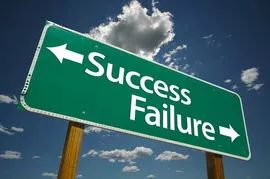
But the truth is the god horse? Which idea is right?
The truth is like the ending of "The Pony Crosses the River": the river is neither as shallow as the yellow cow says nor as deep as the squirrel saysThe basic logic of bidding advertising certainly involves a lot of complex theories, but most people can easily understand the context of its core principles after reading this article.
OneFrom CCTV to Google's bidding advertising system
Regarding bidding advertising, many people think that Baidu is the first domestic bidding advertising company, in fact, in a broader sense, CCTV's gold advertising bidding earlier to popularizeThe concept of "bidding advertising", as early as 1994, CCTV began to auction advertising space in the form of bidding, the birth of Qinchi, Ado VCD and other well-known bidders.
A typical auction scenario is like thisThe auctioneer first indicates the advertising space and indicates the floor price, and then begins to wait for the bidder to bid upward,"One million!" "1.2 million!" "Two million!" "Two million times, two million times, deals!" ,Such scenes can't be more familiar to us in many films and videos, but not all auctions are conducted in this way, and this is just one of many auction mechanismsRising prices are known as "British auctions".
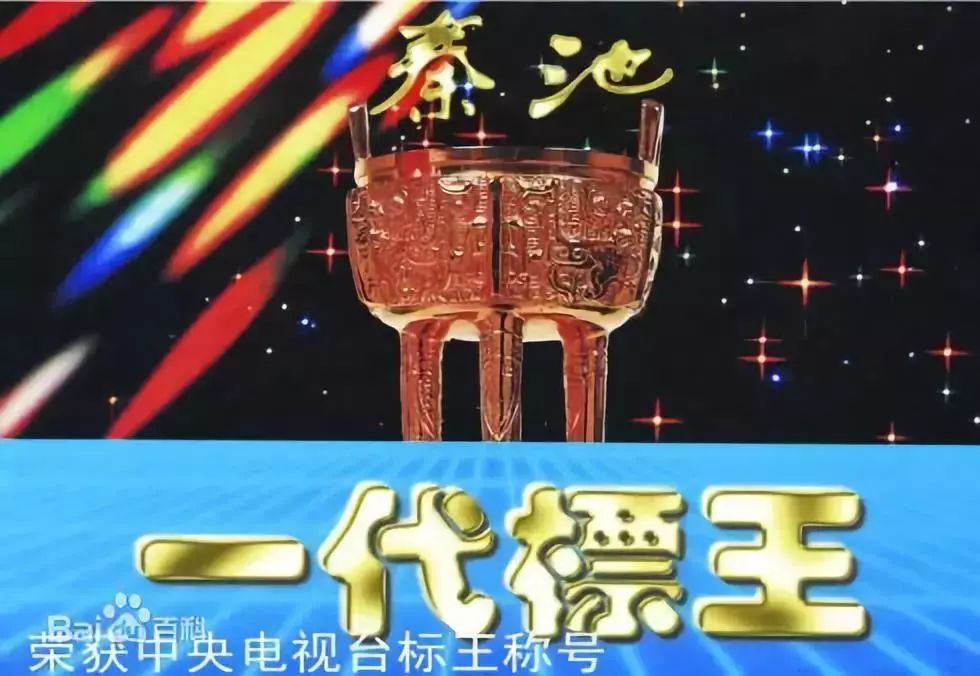
Similar to British auctions, and Dutch auctions,Dutch auctions take the opposite form, with the auctioneer bidding a very high price and then continuing to test it until a bidder is willing to accept the price.
So the problem is comingTraditional advertising can be auctioned in this way, so can online advertising be auctioned in the same way? The answer is no, becauseThere are several important differences between online advertising auctions and traditional advertising auctions, and these differences can have an important impact on the design of the bidding mechanism——
First, whether it's a British auction or a Dutch auction, everyone's bid is public, and many online advertisers may be reluctant to make their bids public, so public bidding becomes unsuitable.
Second, CCTV's auction is a single act, and online advertising is a repeated game many timesThat is, this ad space is robbed, advertisers can also grab the next ad space, advertisers can constantly adjust their bids.
Third, online advertising has multiple objects (each ad request may be the object of multiple bids), the characteristics of a large amount of real-time calculations.
So what kind of bidding mechanism should be adopted for online advertising?In fact, there are many choices, let's look at one by one:
The first possible option isSeal the first price bid, this is actually a familiar way of bidding, many project bidding in this way, its mechanism is that each bidder does not publish their bid, seal it in an envelope to the seller, the auctioneer let the highest bidder win the bid, and pay the highest bidder's bid.
Some people say that this approach looks perfect ah, in line with advertisers do not disclose the need for quotations, but also proved by many practices, however, this bidding method advertisers' bidding strategy depends on how others come out, but has little to do with their true valuation, and this application to online advertising auction will be a problem.
One characteristic of online advertising is the repetition of the game, what does the god horse mean? For example, offline project bidding is a one-time, bidders will be more inclined to be cautious about their bids, because he has only one chance, but online advertising is many times, that is, advertisers have several opportunities to constantly test other people's bids, in order to achieve their own optimal strategy.
Let me give you an exampleGoogle's keyword "run" under the advertising space, Nike think a click is worth 10 yuan, Adi think it is worth 6 yuan, this time if they take the "sealed first price" auction, and Google's advertising system gives the floor price is 2 yuan, then Adi and Nike will try to bid.
Adi from2 pieces start out, Nike out of 2.1, Adi out of 2.2, Nike out of 2.3, the two sides have a process of constantly increasing the price, all the way to 6 when Adi stopped bidding, because it thought the ad is worth up to 6 yuan, Adi exited.
It's only Nike, Nike isn't stupid, and since no one's competing with me, why should I come out?6 pieces, so quickly adjusted to 2 pieces, this time Adi will enter the scene, the cycle began.
Be careful and you'll seeThere is an obvious flaw in this approach- UnstableThe root of this auction is that there is no Nash equilibrium from a game theory point of view (as economists have mathematically demonstrated), that it always has a state where you catch up with me because the auction method depends on the opponent's bid.
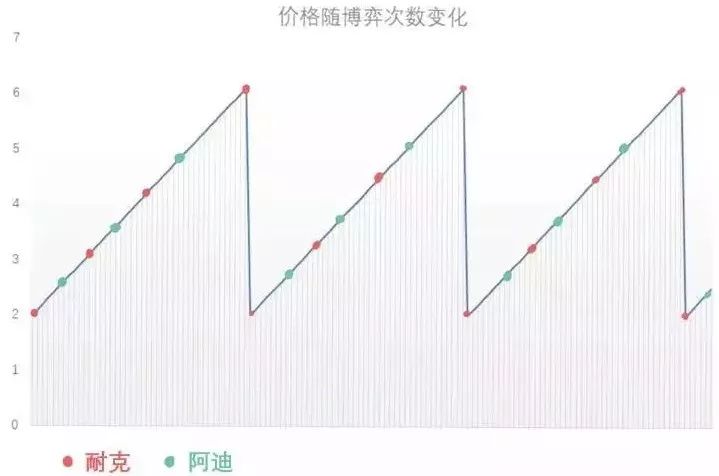
At the same time, on a deeper level, this mechanism has at least two flaws in the mechanism of repeating the game:
First, not in line with Pareto's best,That is, a good auction mechanism should be to sell the target to the highest-valued bidder, in this case the highest-rated Nike, but half the chance was taken away by Adi.
Second, it is not in the seller's interest to maximize,Nike Adi's ratings are far outstrided2 bucks, but the bid starts with 2 bucks.
It can be seen that this way of bidding in online advertising auction is unreasonable, then there is no better way to bid, the answer is yes! Next we'll take a look:
2. A change in winning the Nobel Prize
Economist William JVickery tried to solve this problem by systematically discussing the auction method of "second seal price" in his 1961 book Anti-Speculation, Auction and Competitive Sealing Bids.
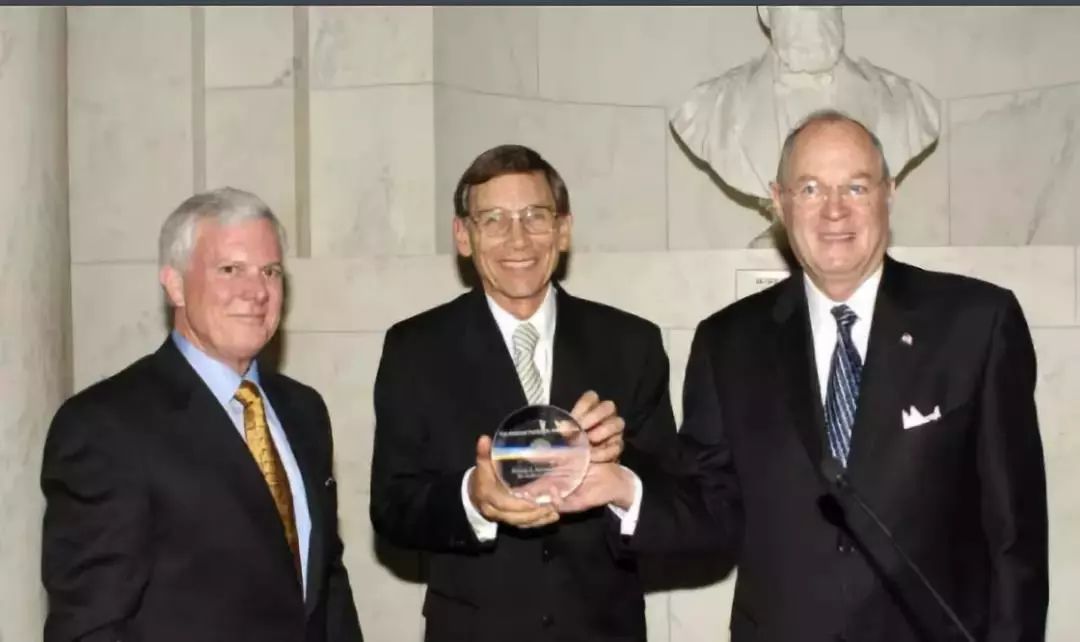
△William.Vickery, left
It's rightThe "first sealed price" made a small change, specifically - the bidder still sealed the bid, still the highest bidder to win the auction, but the winner only needs to pay the second bid, that is, if Nike bid 10, Adi bid 6, is still Nike to win, but Nike only need to pay the second Adi bid - 6.
This is a small, counterintuitive changeThe first place actually only needs to pay the second bid, but don't look down on this small change, it is precisely because of the systematic discussion of this change, let William Vickery won the 1996 Nobel Prize in economics, "sealed second price" auction in economics is also called "Vickery auction", then this magical little change in the end hidden the secret of the god horse?
The answer is that it's just solved systematicallySignificant deficiencies in the "first seal price". Some people will immediately ask: Why can this change to overcome this defect?
Simply put, inIn the "sealed second price" bidding mechanism, everyone has a fixed optimal strategy - bid equal to their own valuation, or above the price strategy, Nike valuation of 10 yuan, Aldi's bid how much do not know, this time Nike's optimal strategy is god horse? The answer is 10 bucks. Why? We consider two scenarios:
First, Adi bids if exceeded10, then Nike can't win anyway, because Nike can't bid higher than its own valuation, higher than its own loss.
Second, Adi is below10, then Nike should pay the maximum price it can to increase its chances of winning, and the maximum value is 10, that is, Nike has no incentive to lower its bid because it has no control over the final price paid.
What does a god horse mean? Suppose Nike out8, this time if Adi out of 6, Nike won the auction and only need to pay 6 pieces, and it costs 10 pieces is no different, but if Adi out of 9 it will lose the bid, so Nike has no incentive to adjust the bid to 8 this potentially failed bid, the only best strategy is to bid 10 yuan.
In the words of game theory,"Sealed second price" has a unique Nash equilibrium, that is, everyone out of their own real valuation of the goods is the best strategy, so the mechanism is a mechanism to encourage bidders to tell the truth, and has considerable stability, that is, advertisers do not frequently adjust their bid motivation.
Under this mechanism, advertisers with the highest ratings always win, while ensuring the platform's revenue, and no advertiser bids lower than their own.In fact, Google, Baidu, Sina Weibo and other advertising platforms are taking this way of bidding.
Well, would anyone say that this way of bidding is the perfect way to bid?Not necessarily.The "sealed second bid" mechanism has at least one flaw, that is, its anti-cheating characteristics are not strong, if there is collusion between the accomplices, in this bidding mechanism, complicity is easier to achieve.What does a god horse mean?
Still using Nike Adi as an analogy, Nike's psychological bid isTen bucks, Adi is 6 bucks, this time they collude, Adi out of 1 piece, Nike out of 10 yuan, eventually Nike only need to spend 1 dollar to buy this advertising space, injured is the advertising platform. Smart people will immediately say - isn't that what happens with the "first seal price"? For example, Nike and Adi to discuss good, Nike out of 1 piece, Adi out of 0.5 yuan, or Nike at the price of 1 yuan to buy this advertising space ah!
That's right, but"First Sealed Price" is more likely to betray accomplices, although the good Nike out of 1 piece, Adi out of 0.5 hair, but Adi is motivated to violate the accomplices, as long as Adi out of 2 pieces, it can win the auction, this time Nike is silly eyes.
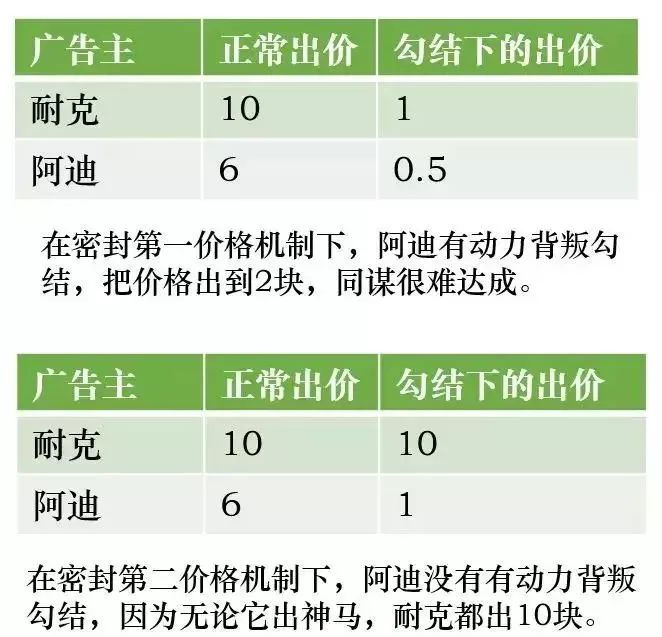
But in the case of the "second sealed price", Nike out of 10, Adi out of 1, this alliance is very powerful, because Adi in any case betrayal, it is impossible to win the auction (its bid can not exceed 6 pieces), so it has no incentive to betray, so the accomplice is easier to achieve, the probability of cheating will be greater.
Well, since there is this defect, then now online advertising Google, Baidu why use it? An important reason is thatUnlike a single offline auction, online advertising is a large-scale repeat game, large-scale means that the number of advertisers involved in bidding is large, objectively increased the difficulty of colluding to cheat, in a sense to cover up the shortcomings of this mechanism.
ThreeVCG, a multi-advertising auction mechanism
Above we discuss the basic principles of the bidding mechanism, all examples are a bit of ad situation, andIn a real-world advertising system, a single request for an ad is often multipleFor example, search engines have more than one ad space, how should we set up the bidding mechanism?
Google, Baidu put itThe "sealed second price" auction carried out an extension, that is, if there are more than one ad space, the first place is charged by the second place plus a minimum bid unit (e.g0.01 yuan), second place by third place deduction, third by fourth place deduction, and so on,This bidding method is calledGeneralized Second Price Auction, or GSP for short.

△GSP broad second price auction
This approach maximizes the advantage of "sealing the second price", i.e. it creates a stable equilibrium, but it also has the disadvantage that it is not a way to maximize the welfare of all bidders.
So, three economistsVickrey, Clarke and Groves proposed a multi-item auction mechanism in three papers"VCG Auction", this complex bidding mechanism from the overall interests of the entire bidder, it is still the high price, but the deduction is the calculation of the high price participants to other bidders to bring the total loss, that is, first calculate the total benefit of the participants without the high price, and then calculate the total benefits of others after the participation of the high price, the difference between the benefits is the loss of other participants.
In short, if you participate in a bid, you lose money to other bidders, and you have to pay for the overall benefit reduction of the system to maximize the overall benefit.
This bidding method is relatively complex to calculate, and I use a simple example to illustrate itIf you now have two ad spaces, that is, search for "running" keyword first and second place, the first can bring 20 clicks, the second can bring 10 clicks.
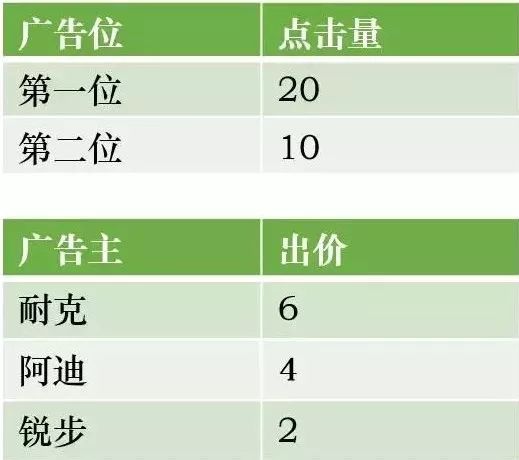
There are three advertisers bidding, Nike 6 per click, Adi 4 and Reebok 2. According to the principle of high price, Nike won the first ad space, Adi won the second ad space, and Reebok failed to bid.
Here's the question: How much should Nike be charged? According to.VCG Bidding Law:
First calculate the revenue of Adi and Reebok when No Nike participates in the bidding, i.e. Adi wins the first ad space and Reebok wins the second ad space4*20+10*2=100
Then calculate the nike participation in the bidding of Adi and Reebok revenue, that is, Adi won a second advertising position, Reebok out, the proceeds are4*10+2*0=40。
The difference between the benefits of the two is100-40=60
Then Nike should pay for each click60/20 - 3 pieces.
That's how Facebook's advertising system competes, this bidding method maximizes the benefits of the bidding participants, but we can see that the auctioneer's interests are not maximized, in the case above Nike's deductionThree is less than the four charged under the GSP bidding rules for the second place, so to speak, Facebook is sacrificing short-term benefits and thinking in the longer term, because bidding ads are not a short-term act, and Facebook believes it is in its long-term interest to ensure the overall interests of advertisers.
So why didn't Google do the sameHow VCG bids?
On the one hand, because despiteVCG can maximise bidder benefits, but it's hard to explain to advertisers that there will be huge educational costs; Hal Varian, Google's chief economist, has made it clear that one of the reasons Google was reluctant to move from GSP to VCG in 2002 was because user education costs were too high.
On the other hand, also because fromGSPs heading directly to VCG risk falling revenues, and economists have shown that VCG's revenues are no higher than GSPs'.

Theme.Read. //
Re-disking . . 7 keywords to light up the advertising industry in 2017
Can "jump" implanted into Nike ads solve WeChat's commercialization?
// Recommended reading //
High salary: co-author(Point I know more)

You can also click "Read the original text" and buy a notebook alone in the micro-store




Send to the author